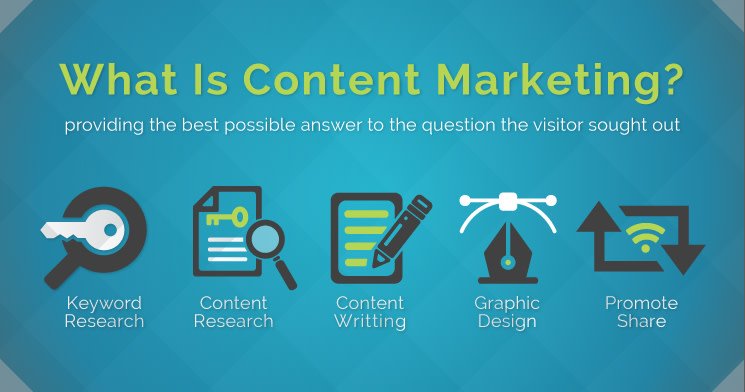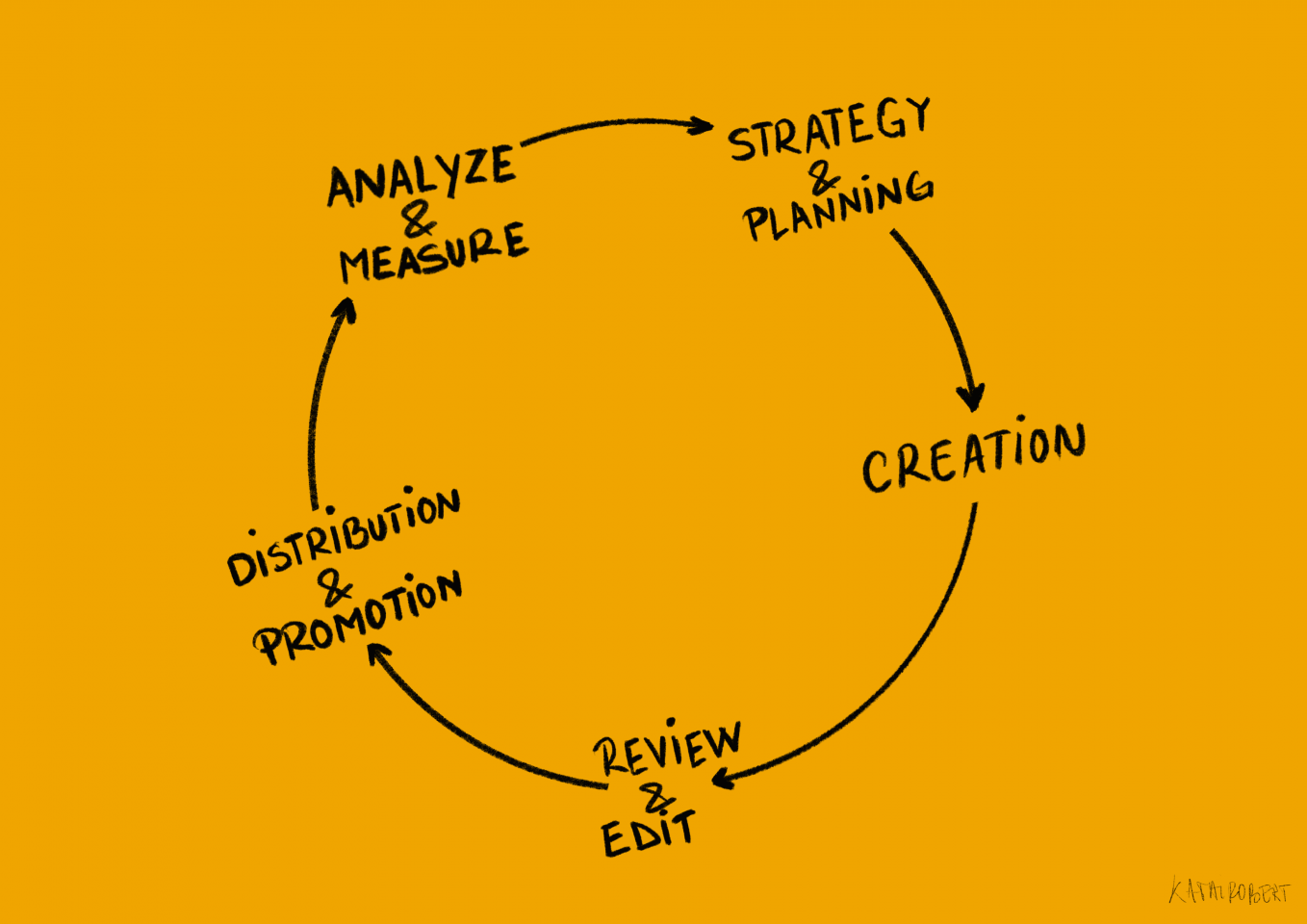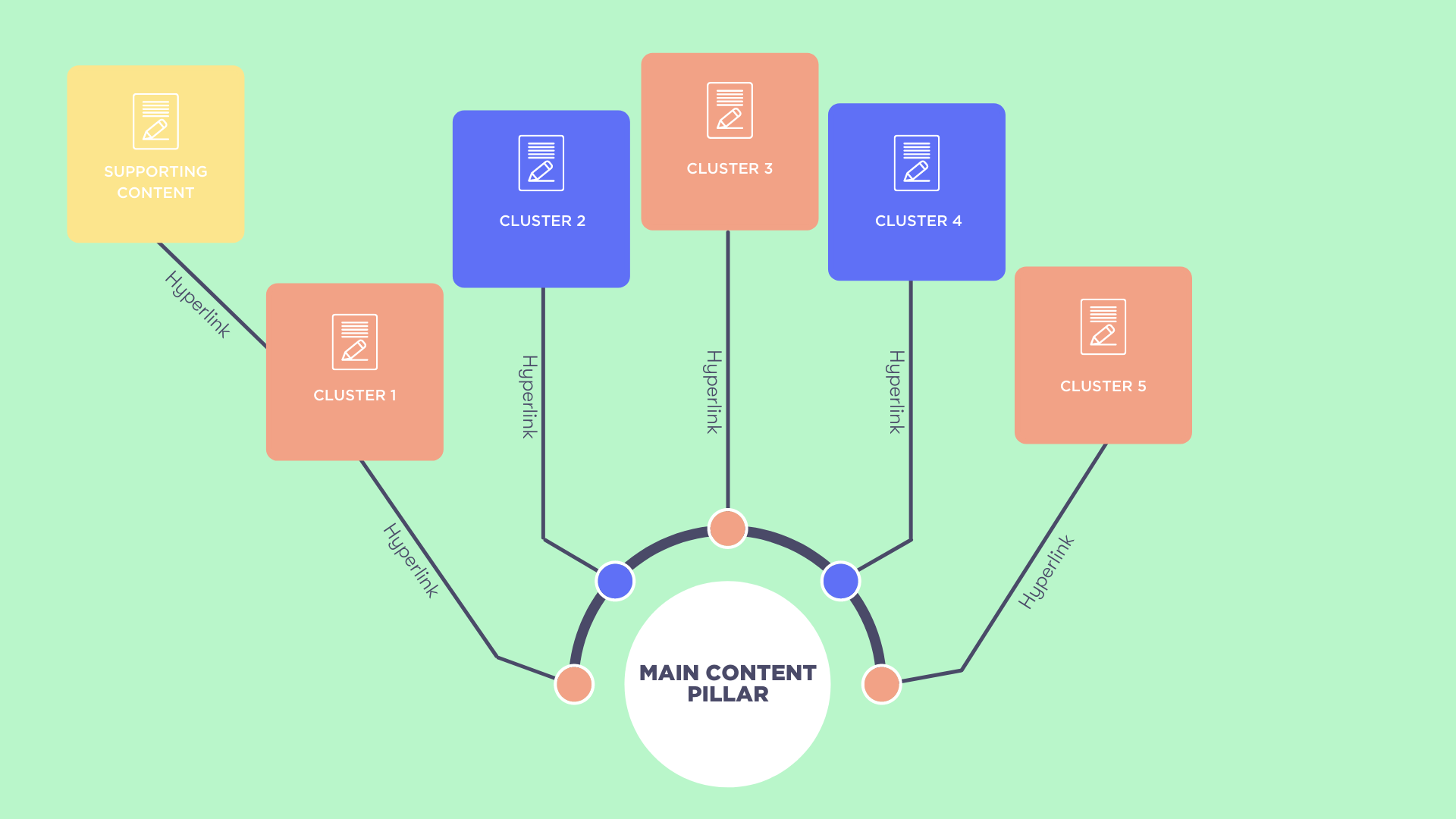About content marketing
Content marketing is an effective way for businesses to reach customers and engage them in meaningful conversations. By creating and sharing valuable content, businesses can create an emotional connection with their audience and build relationships with them. Content marketing can be used to promote products, services, and brands, as well as to educate customers and drive them to take action. Content marketing can also help businesses reach new customers, increase brand loyalty, and increase sales.
Content marketing strategies should be tailored to fit the needs of the business and its target audience. This means that businesses need to create content that is relevant to their audience and that resonates with them. Content should be engaging and informative, as well as entertaining. Businesses should also focus on creating content that is easy to share and that has the potential to go viral.
Content marketing also involves leveraging different channels to reach customers. This includes social media, email, SEO, and traditional advertising. By using all of these channels, businesses can create a comprehensive content marketing strategy that will help them reach a wider audience and drive more customers to their website. Additionally, businesses can use content marketing to build relationships with their customers and stay top-of-mind.
When creating content, businesses should focus on creating high-quality content that is engaging and helpful to their customers. Content should be well-researched and easy to read. Additionally, businesses should ensure that their content is optimized for search engines so that it can be easily found by customers. Content should also be regularly updated and shared to ensure that customers are kept informed and engaged.
Why content marketing is used?
Content marketing is used by businesses to create and distribute valuable content to attract and engage an audience—with the goal of increasing sales. Content marketing is becoming increasingly popular because it allows businesses to reach their target audience more effectively and cost-efficiently than traditional advertising.
Content marketing can be used to increase brand awareness, build relationships, and engage customers. Businesses can use content marketing to share valuable information about their products and services, as well as provide educational content to help customers understand their offerings. Content marketing can also be used to increase website traffic and build search engine optimization (SEO) rankings.
Content marketing is also used to build relationships with customers. By creating content that answers customers’ questions, businesses can form a connection with them and show that they are dedicated to providing helpful information. Content marketing can also be used to create an emotional bond with customers, as well as encourage them to take action.
Content marketing is also a great way to generate leads. By providing valuable content, businesses can encourage readers to sign up for newsletters, take surveys, and provide contact information. This data can then be used to build a customer database, which can be used to provide more targeted content and promotions.
Content marketing is an essential part of any digital marketing strategy. By creating and distributing valuable content, businesses can engage customers, build relationships, and increase sales.
Roles of content marketing
-
Educating Customers:
Content marketing is an effective way to educate customers about products and services. Content can provide customers with useful information about a company’s offerings, helping them make informed decisions.
-
Increasing Brand Awareness:
Content marketing can help to increase a brand’s visibility and reach. By creating and distributing content that provides useful information to customers, companies can build trust and loyalty with their target audience.
-
Generating Leads:
Content marketing can be used to generate leads. By providing valuable content that encourages customers to take action, companies can get more qualified leads.
-
Establishing Authority:
Content marketing can be used to establish a company as an authority in its industry. By creating content that demonstrates expertise, companies can build credibility and trust with their customers.
-
Building Relationships:
Content marketing can help companies build relationships with their customers. By providing content that is helpful and engaging, companies can build relationships and loyalty with their target audience.
-
Driving Traffic:
Content marketing can be used to drive traffic to a company’s website. By creating content that is valuable and shareable, companies can increase the number of visitors to their website.
-
Increasing Engagement:
Content marketing can help to increase engagement with customers. By providing content that is interesting and engaging, companies can promote conversations and build relationships.
-
Repurposing Content:
Content marketing can be used to repurpose content for multiple channels. By creating content that can be used on multiple platforms, companies can get more mileage out of their content.
-
Improving SEO:
Content marketing can be used to improve a website’s SEO. By creating content that is optimized for search engines, companies can improve their rankings in search results.
-
Increasing Conversion Rates:
Content marketing can be used to increase conversion rates. By providing content that encourages customers to take action, companies can get more qualified leads and increase sales.
Pillars of content marketing
- Research and Strategy:
Research and strategy are the essential components of content marketing. You need to understand your target audience, their needs and preferences, and the competitive landscape to create effective content.
-
Content Creation:
Content creation is the process of creating content that appeals to your target audience and resonates with them. It requires creativity and understanding of your target audience.
-
Distribution and Promotion:
Once you have created content, you need to distribute and promote it to reach your target audience. This can include leveraging various channels such as social media, email, and search engine optimization (SEO).
-
Measurement and Analytics:
Measurement and analytics are essential to understanding the performance of your content. This will enable you to make data-driven decisions on how to improve your content strategy.
-
Optimization:
Optimization is the process of continually refining and improving your content to ensure it is reaching the right audience and resonating with them.
-
Repurposing and Republishing:
Repurposing and republishing your content is a great way to maximize its reach and ensure it reaches more people.
-
Storytelling:
Storytelling is an effective way to engage with your audience and build relationships with them.
-
Collaboration:
Collaborating with other content creators and influencers is a great way to expand your reach and tap into new audiences.
-
Automation:
Automation helps to streamline processes and ensure consistency across content creation, distribution, and promotion.
-
User Generated Content:
User generated content is an effective way to engage with your audience and build trust. Encouraging your audience to create content related to your brand is a great way to build relationships with them.
Main objective of content marketing
-
Build brand awareness:
Content marketing helps build your brand, create recognition, and increase visibility. It allows you to connect with your target audience and become a thought leader in your industry.
-
Establish trust and credibility:
Content marketing can help establish trust and credibility with your audience, by providing them with valuable, relevant, and consistent content.
- Generate leads:
Content marketing can help generate leads for your business, as it provides potential customers with an easy way to learn about your products, services, and solutions.
- Increase conversion and sales:
Content marketing can help increase conversion and sales, by providing customers with valuable content that speaks to their needs and helps to build a relationship.
- Enhance customer loyalty and retention:
Content marketing can help enhance customer loyalty and retention, by providing customers with helpful information that they can use to make informed decisions.
-
Improve SEO:
Content marketing can help improve SEO, by providing customers with quality content that is optimized for search engines. This can help increase organic traffic and boost rankings.
What are skills do we need for content marketing
-
Research Skills:
Content marketers need to be able to conduct research on their target audience, industry trends, and topics of interest. They should have an understanding of the types of data that can be used to inform their content strategy and create the most relevant and effective content.
-
Writing Skills:
Content marketers should have a strong command of the English language and be able to write engaging, creative, and persuasive content. They should also have a good understanding of SEO principles and be able to write content that is optimized for search engines.
-
Editing Skills:
Content marketers should be able to review, edit, and proofread their own work. They should also be able to provide feedback to others on their content.
-
Strategic Thinking Skills:
Content marketers need to be able to come up with creative strategies for content marketing campaigns. They should be able to think ahead and plan for the future.
-
Analytical Skills:
Content marketers need to be able to analyze data to determine what content is working and what isn’t. They should also be able to take that data and use it to optimize their content marketing campaigns.
-
Social Media Skills:
Content marketers need to be able to understand the different social media platforms and how to use them to promote content. They should have a good understanding of the various social media algorithms and how to use them to their advantage.
-
Project Management Skills:
Content marketers need to be able to manage multiple projects at once. They should be able to delegate tasks to their team and ensure that all deadlines are met.
-
Storytelling Skills:
Content marketers need to be able to tell stories in their content. They should be able to communicate a message in an interesting and engaging way that resonates with their target audience.
-
Visual Communication Skills:
Content marketers should have a good understanding of visual design principles. They should be able to create visuals that support their content and help engage the reader.
-
Technical Skills:
Content marketers should have a basic understanding of HTML, CSS, and other coding languages. They should also be able to use content management systems and other software programs to create and manage content.
Benefits of content marketing
-
Cost effective:
Content marketing is an incredibly cost effective way to reach a large audience. It’s much cheaper than traditional advertising, and you can reach a wide range of potential customers with just a few pieces of content.
-
Helps build trust:
Content marketing can help you build trust with your customers. When you provide helpful information to your customers, they’ll start to trust your brand and be more likely to buy from you.
-
Increased visibility:
Content marketing can help you increase your visibility online. When you create high quality content, people will be more likely to share it and link to it, which can help you rank higher in search engine results.
-
Improved customer engagement:
Content marketing can help you engage with your customers and build relationships with them. You can use content to start conversations, answer questions, and show your customers that you understand their needs.
-
Generates leads:
Content marketing can help you generate leads. When you create content that is helpful and informative, people will be more likely to share it, which can help you generate leads.
-
Establishes authority:
Content marketing can help you establish yourself as an authority in your industry. By creating content that is of a high quality, you’ll be able to show potential customers that you know what you’re talking about.
-
Better customer retention:
Content marketing can help you retain customers. By providing helpful content, you’ll be able to keep customers engaged and interested in your product or service.
-
Improved search engine rankings:
Content marketing can help you improve your search engine rankings. When you create content that is of a high quality, it can help you rank higher in search engine results.
-
Increased website traffic:
Content marketing can help you increase the amount of traffic to your website. When you have high quality content, people will be more likely to share it, which can drive more traffic to your website.
-
Increased ROI:
Content marketing can help you increase your return on investment. By creating content that is helpful and informative, you’ll be able to reach a wider audience and get more out of your marketing efforts.
Conclusion
Content marketing is a valuable tool for businesses of all sizes, and can be used to increase brand awareness, drive website traffic, generate leads, and build customer loyalty. Content marketing strategies require careful planning and execution in order to be successful, and businesses should always strive to create content that is relevant to their target audience. In addition, businesses should leverage analytics to measure the success of their content marketing efforts and ensure that they are using the best tactics to reach their goals. By taking the time to develop and implement a successful content marketing strategy, businesses can reap the rewards of increased visibility, customer engagement, and customer loyalty.
Content marketing can help you establish your brand as an authority in your industry, increase website traffic, generate leads, and improve customer engagement.
You can create a variety of content types, such as blog posts, videos, podcasts, webinars, e-books, infographics, case studies, and more.
It depends on your industry and goals, but you should aim to publish content regularly. You can start with 1-2 posts per week and increase your frequency as you become more comfortable with content creation.
You can measure the success of your content by tracking metrics such as pageviews, time on page, and engagement (likes, shares, comments). You can also measure conversions such as newsletter sign-ups or sales.
You can promote your content by leveraging social media, email marketing, search engine optimization, and influencer marketing.
You can get ideas for content by reading industry blogs and publications, talking to customers and industry experts, and following trends on social media.
You can use a variety of tools to create content, such as graphic design programs (e.g., Adobe Photoshop and Canva), video editing software (e.g., Adobe Premiere Pro), and content creation tools (e.g., WordPress and Medium).




